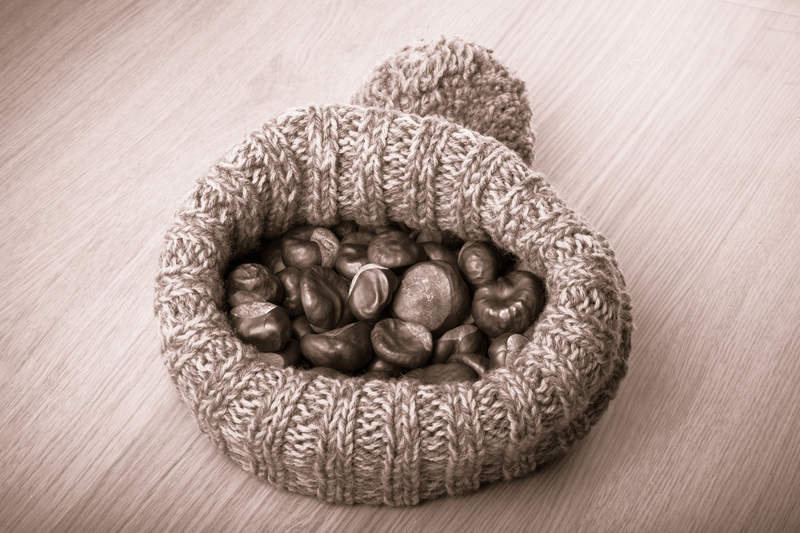Improve Your Household Recycling with Creative Strategies
Are you looking to improve your household recycling? With increasing environmental awareness and stricter waste management guidelines, now is the perfect time to transform your recycling habits. Discover innovative and practical strategies to upgrade your residential recycling routines, reduce waste, and contribute to a greener planet.

Why Focus on Household Recycling?
Household waste constitutes a significant portion of municipal solid waste. By implementing effective recycling techniques at home, you not only conserve resources and save energy but also reduce landfill overflow and minimize your carbon footprint. Moreover, children and family members can develop lifelong sustainability habits, making household recycling a win-win for both your family and the environment.
The Basics of Home Recycling: Get Them Right First!
- Understand your local recycling rules and guidelines.
- Know the difference between recyclable and non-recyclable materials.
- Clean and rinse items before placing them in your bin.
- Flatten cardboard boxes to save bin space.
- Remove caps and lids from bottles and jars.
Before exploring creative recycling techniques, ensure your family understands these fundamental steps. Once everyone is on board, you're ready to implement innovative household recycling strategies.
Creative Strategies to Improve Your Home Recycling
1. Set Up a Convenient and Inspiring Recycling Center
Location is everything. Designate an accessible area in your kitchen, garage, or utility room for your home recycling center. Use color-coded bins to clearly distinguish paper, plastics, glass, and metals. Add clear signage with pictures to reduce sorting errors, especially for kids.
Spruce up the area with fun artwork, labels, or inspiration boards. A pleasant recycling station encourages all household members to participate actively, turning recycling into a positive daily habit instead of a chore.
2. Gamify Recycling for Your Family
Take household recycling up a notch by making it a fun challenge! Set weekly recycling goals and track your progress. Offer small rewards like a family movie night or a homemade treat when you surpass your targets. You can also have recycling competitions, such as who sorts the most items correctly or who comes up with the most creative reuse idea for a recyclable item.
- Recycling Bingo: Make a bingo card featuring different recyclable materials; the first one to fill a row wins.
- Sorting Races: Time family members in sorting items accurately.
- Reuse Art Challenges: Encourage creativity by crafting something useful from recyclables.
3. Upcycle and Repurpose as Part of Household Recycling
Not all recyclable materials need to go straight to the curb! Upcycling allows you to turn would-be-trash into useful or decorative household items. Here are some practical and creative upcycling ideas:
- Glass jars and bottles: Transform them into vases, spice jars, or storage containers.
- Plastic containers: Use them as organizers for office supplies or craft materials.
- Cardboard boxes: Create drawer dividers or art canvases for kids.
- Old t-shirts: Cut them up for cleaning rags or tie-dye them for reusable shopping bags.
Upcycling not only makes your household more sustainable but also lets you recycle creatively and purposefully.
4. Compost Organic Waste
Composting is an often-overlooked but essential component of home waste management. Collect kitchen scraps like coffee grounds, vegetable peels, and eggshells--and even some paper products--in a dedicated indoor bin. Regularly transfer the contents to a compost pile or bin outdoors. Over time, you'll have rich compost for your garden and reduce your household's landfill output drastically.
- Limit compost to raw fruits and vegetables.
- Avoid composting dairy, meat, and oily foods.
- Balance "greens" (food scraps) with "browns" (dead leaves, shredded newspaper) for optimal composting.
5. Educate and Involve Your Family in Recycling Efforts
Improvement starts with awareness. Teach your children and household members the value of recycling and the impact of waste on the environment. Use documentaries, online tutorials, or even hands-on activities to drive the message home.
Make learning ongoing. Post infographics or recycling "dos and don'ts" near bins for easy reference. Host family meetings once a month to discuss progress and brainstorm new ideas to enhance your home recycling program.
6. Choose and Purchase Wisely
Prevention is better than cure: The best way to minimize waste is to avoid generating it in the first place.
- Opt for products with minimal packaging or packaging that is easy to recycle.
- Bring reusable bags, bottles, and containers when shopping.
- Buy in bulk to reduce individual packaging waste.
- Choose brands committed to sustainable packaging and waste reduction.
Smart shopping habits drastically improve your household's waste and recycling efficiency.
7. Make Recycling a Community Affair
Sometimes, household recycling alone isn't enough. Engage your neighbors in group recycling initiatives:
- Host neighborhood collection drives for hard-to-recycle items like electronics or batteries.
- Share upcycling project ideas and resources among community members.
- Participate in or organize local clean-up campaigns.
By fostering a sense of community, you reinforce good habits and expand the impact of your household recycling efforts beyond your home.
Common Recycling Mistakes and How to Avoid Them
- Wish-cycling: Placing non-recyclable items in recycling bins, hoping they are recyclable.
- Contamination: Allowing food residue, grease, or liquids to remain on recyclable items.
- Bagging recyclables: Most curbside programs require loose items, not bagged ones.
- Overlooking specialty items: Batteries, electronics, and light bulbs need special disposal.
- Ignoring updated guidelines: Recycling rules can change--stay informed via city or municipal updates.
Avoiding these mistakes keeps recyclable materials from being rejected and ensures more efficient processing at recycling facilities.
Advanced Tips to Enhance Your Home Recycling Habits
Create a Recycling Calendar
Whether your municipality collects recyclables weekly or biweekly, a recycling calendar keeps everyone on track. Mark collection days, special drop-off events, and reminders to clean bins. Set phone alerts for regular de-cluttering, and get into the habit of dealing with recyclables before they pile up.
Track Your Waste Reduction Progress
Measure the volume of recyclables and general waste your household produces over a month. Set realistic targets to decrease overall waste while boosting your recycling output. Celebrate milestones, and analyze what worked and what didn't to refine your strategies.
Utilize Technology and Apps
Many apps and online resources can help streamline your household recycling system. These tools can provide local recycling information, reminders, and tips.
- Recycle Coach: Offers recycling schedules, guidelines, and location-based info.
- iRecycle: Helps you find local recycling centers for difficult items.
- My Waste: Organizes waste collection calendars and notifications.
Get Creative with Storage Solutions
Running out of bin space? Use stackable containers or modular recycling bins in tight areas. Store dry recyclables like paper and plastics in large reusable bags, or use under-sink caddies for convenience. Label everything to eliminate confusion and streamline sorting.

Sustainable Home Recycling: Beyond the Bin
Sell or Donate Usable Items
Before recycling, consider if an item can be reused by someone else. Online marketplaces and local charity organizations often accept:
- Clothing, shoes, and accessories
- Working electronics and small appliances
- Books, toys, and household goods
- Furniture pieces
Donating or selling usable items reduces landfill waste and helps those in need, aligning with broader sustainable living principles.
Support Local Recycling Initiatives
Stay informed about local events for the safe disposal and recycling of hazardous or bulky household waste. Many municipalities hold periodic collections for paint, batteries, electronics, or old furniture. Participate to ensure these items are managed responsibly.
Eco-Friendly Upgrades That Complement Recycling
Take your sustainability efforts to the next level by integrating eco-friendly practices with recycling:
- Install low-flow water fixtures to conserve resources.
- Switch to energy-efficient appliances and LED lighting.
- Grow your own vegetables and herbs in your compost-enriched garden.
- Choose biodegradable cleaning supplies.
Each small step contributes to a greener home and reduces strain on our planet's limited resources.
Conclusion: Turn Recycling Into a Rewarding Lifestyle
Improving your household recycling system is about more than just sorting plastic and paper--it's a comprehensive lifestyle shift that blends creativity, convenience, and a bit of fun. By applying the strategies above, you can transform your home into a model of responsible waste management, setting a positive example for your community and future generations.
Remember: Every recycled item counts. From upcycling to composting, teaching your kids to embracing new technology, there is an abundance of creative recycling methods at your disposal. Start today, and watch as your improved household recycling efforts make a real difference for your home, your community, and the planet.
Ready to Get Started?
- Assess your current recycling setup.
- Select at least two creative strategies from this guide.
- Involve your household and set specific goals.
- Track progress and stay motivated!
With a little planning, positivity, and creative thinking, you can elevate your household recycling game and pave the way toward a cleaner, more sustainable future!